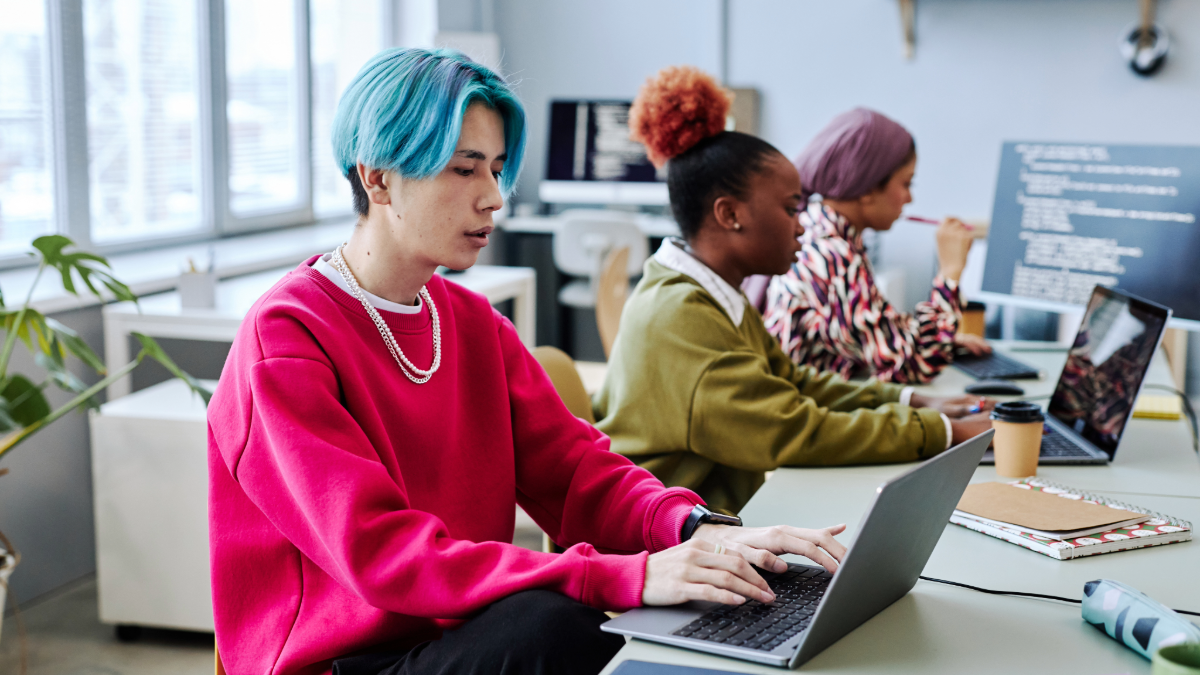2020 made relationships harder. But it also made us reflect more. How do organizations harness the connections challenged by virtual space—and the polarization of politics--to build a cohesive corporate culture?
Relationships matter. While we used to view relationships among colleagues as a “nice to have,” in the current business climate they are no longer optional. They are the “secret sauce” to success. That’s why Reflection Point (formerly known as Books@Work) is a game changer.
Case in point: In the midst of the pandemic, the leadership team of a specialty manufacturing company met virtually for facilitated discussions of short stories. A first time experience for all but one team member, the conversations emphasized the team-building power of getting together and “just talking” in the face of the “day-to-day craziness.”
One member, Mark, shared his impressions of George Saunders’ “Puppy,” a story that deals with parents, class, judgment and the complexity of relationships in the context of a soon-to-be adopted puppy.
Although his initial reflections were rooted in his own family, in the conversation “I got closer to understanding some patterns of thought and reactions that I have noticed in the workplace. We are a fast moving business and sometimes we fail to navigate or investigate the deeper issues underlying the work.”
Shared stories break down barriers and build trust
Strong, resilient and trusting relationships make exploring deeper more complex issues safer and more productive. They invite collaboration and drive innovation, inclusion and productivity – all collective (and non-negotiable) organizational outcomes.
But collective outcomes require collective skills.
Although I rarely see the world in mathematical terms, I have begun to think about this idea as an equation:

IQ and EQ are easy. These are the technical know-how to do your job and the self-awareness to navigate the workplace. These are individual skills upon which we are graded, hired, measured and promoted.
CQ represents collective skills, evidenced by those critical collective outcomes, where the whole is greater than the sum of the parts. These outcomes are the products of truly effective teams, the fruits of our work when we collaborate well, share our perspectives, envision multiple realities, challenge our paradigms.
The science tells us that collective intelligence is real and measurable - and that it’s not simply the result of higher average individual intelligence or even of a team with one super smart person.
So how does a group of high performing individuals become a fully functioning team?
Relational skills and psychological safety
Enter RQ. Relational skills are the interactive skills that we do not traditionally learn in school or in workplace learning programs. These include trust and mutual respect and the ability to suspend our beliefs to be open and sensitive to the realities of others. They foster psychological safety, heralded as the key factor in the most successful teams, where everyone feels safe to speak up, be bold and to make mistakes, knowing that their team members have their back.
Just as relational skills ensure the output of a great team, they need to be tackled as a team—learned and practiced in a safe, low-risk and supportive space. In fact, relational skills are a product of learning together and building the confidence to apply these skills to the wicked challenges of a fast-paced world.
Mark and his colleagues understood the need to build relational skills together. As Mark added, these conversations provided “time for the management team to pause and get into some deeper issues, even if it was just a story. This was great practice for the future when conversations need to be serious or deep-reaching.”
We would never expect a sports team to play without practice. Yet we ask business teams to do this all the time. Relational skills don’t happen by themselves. They take time, a space for reflection and an intentional investment to practice, to explore new ideas and perspectives in a collective learning space designed for that purpose.
The ROI? Revolutionary.








